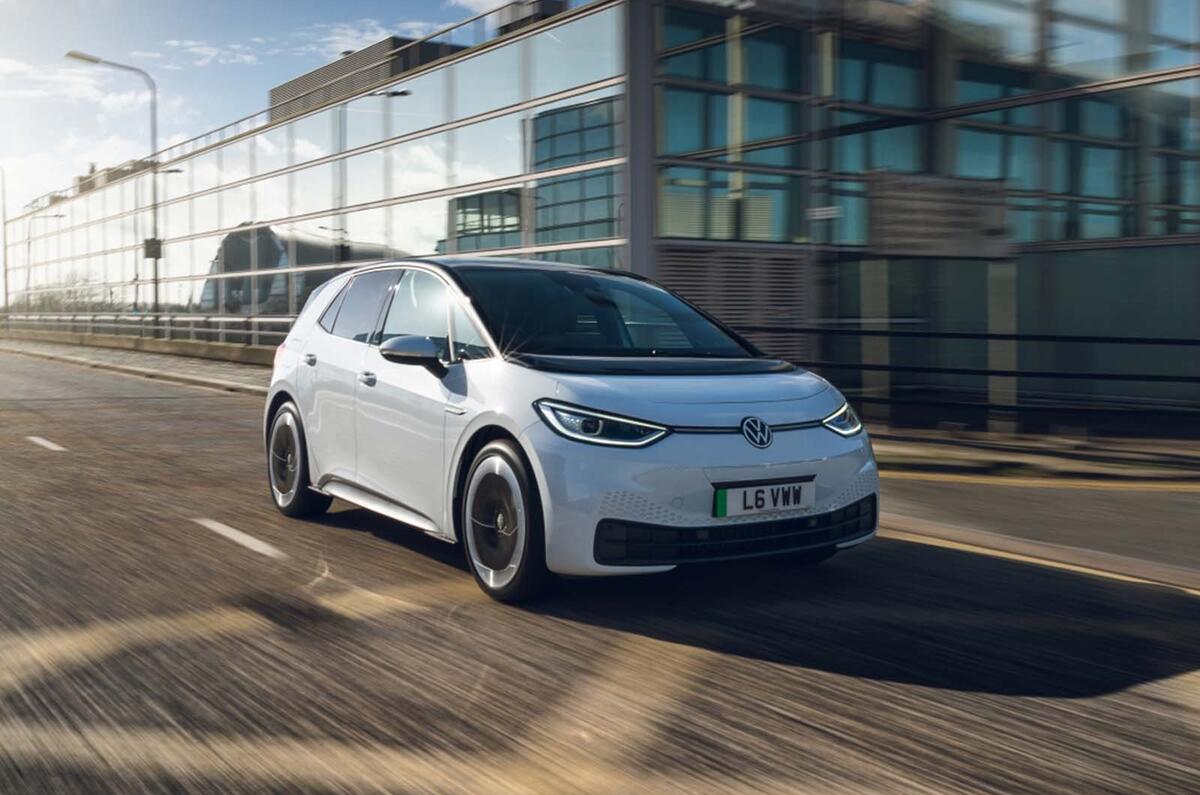Electric vehicle fleets are facing rising operating costs, as the Autumn Statement details £55 billion of tax and spending reforms over the next five financial years.
Following industry lobbying, fleets received long-overdue confirmation of company car tax bands to April 2028. These are CO2-weighted percentages of the list price used to calculate a car’s taxable value, on which drivers then pay benefit in kind at a rate based on their income tax band (usually 20% or 40%).
Electric cars and plug-in hybrid cars emitting less than 75g/km CO2 will continue to get a 1%-point annual rise from April 2025. Vehicles with higher CO2 figures will also get a 1%-point rise in April 2025, capped at 37%, then rates will be frozen until 2028.
Although this results in a 250% rise in EV benefit in kind over three years, EVs are still heavily incentivised. Based on current list prices, a 20% taxpayer would pay £31 per month for a Volkswagen ID 3 in 2027/28, compared with £130 for a Volkswagen Golf 1.5 TSI petrol – a 76% saving.
Tax reforms also impact employers. Class 1A National Insurance Contributions are a flat 13.8% of the taxable value, while EVs will qualify for the standard rate of vehicle excise duty from April 2025, including the five-year levy for models costing over £40,000. Those rates are currently £165 and £335 respectively, but likely to increase in the meantime.
Most have welcomed the announcement. David Bushnell, director of consultancy and strategy at Fleet Operations, said: “[The] Autumn Statement has given fleet businesses and drivers clarity, along with breathing space, to plan ahead and factor tax rises for EVs into their financial forecasts and budgeting from 2025.”
The reforms also affect charging costs, including an extension of the first-year allowance for installing workplace charge points extended to April 2025 – a £60 million cost to the Treasury, aimed at encouraging businesses to invest.
Announced separately, the Advisory Electric Rate (AER) for reimbursing EV drivers will be raised from 5p to 8p per mile from 1 December, following lobbying from the British Vehicle Rental and Leasing Association (BVRLA) and Association of Fleet Professionals (AFP).
However, financial support for home energy bills will be wound back from April 2023, raising an average household’s annual bill from £2500 to £3000. Unit price caps for electricity have not been published yet, but this will make charging at home more expensive for some drivers.
Paul Hollick, chair of the AFP, said: “[The AER] is much closer to real-world costs for the vast majority of EV drivers and will allow much fairer reimbursement, although it remains too low for both vans and all drivers who don’t have home charging.
“Probably just as significant is we will now see quarterly AER reviews in the same way as for Advisory Fuel Rates (AFRs) – something that is clearly important at a time when energy and other EV running costs have been increasing rapidly.”






Add your comment